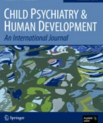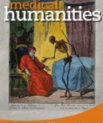Genetic predictors of educational attainment and intelligence test performance predict voter turnout
Research funded by IMC Seed Funding published in Nature Human Behaviour
Abstract
Although the genetic influence on voter turnout is substantial (typically 40–50%), the underlying mechanisms remain unclear. Across the social sciences, research suggests that ‘resources for politics’ (as indexed notably by educational attainment and intelligence test performance) constitute a central cluster of factors that predict electoral participation. Educational attainment and intelligence test performance are heritable. This suggests that the genotypes that enhance these phenotypes could positively predict turnout. To test this, we conduct a genome-wide complex trait analysis of individual-level turnout. We use two samples from the Danish iPSYCH case–cohort study, including a nationally representative sample as well as a sample of individuals who are particularly vulnerable to political alienation due to psychiatric conditions (n?=?13,884 and n?=?33,062, respectively). Using validated individual-level turnout data from the administrative records at the polling station, genetic correlations and Mendelian randomization, we show that there is a substantial genetic overlap between voter turnout and both educational attainment and intelligence test performance.
Article
Aarøe, L., Appadurai, V., Hansen, K.M., Schork, A., Werge, T., Mors, O., Børglum, A. D., Hougaard, D.M., Nordentoft, M., Mortensen, P.B., Thomson, W.K., Buil, A., Agerbo, E., & Petersen, M.B. Genetic predictors of educational attainment and intelligence test performance predict voter turnout. Nature Human Behaviour (2020). https://doi.org/10.1038/s41562-020-00952-2
Contact
- Lene Aarøe, IMC Researcher, Associate professor, Department of Political Science, Aarhus University
- Michael Bang Petersen, IMC Researcher, Professor, Department of Political Science, Aarhus University
- Esben Agerbo, The Lundbeck Foundation Initiative for Integrative Psychiatric Research (iPSYCH), Aarhus, Denmark; Department of Economics and Business Economics—National Centre for Register-based Research, Aarhus University, Aarhus, Denmark (corresponding author)



